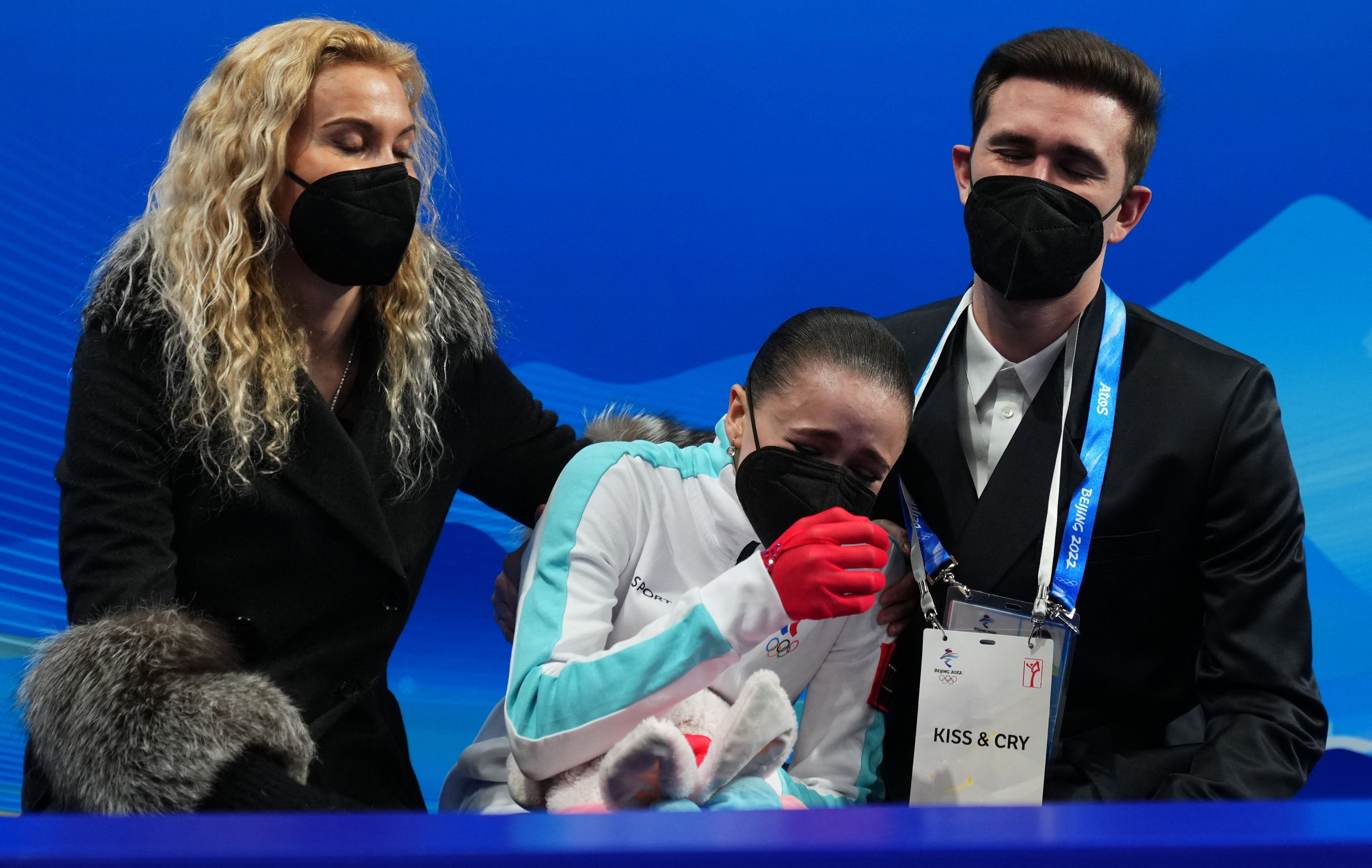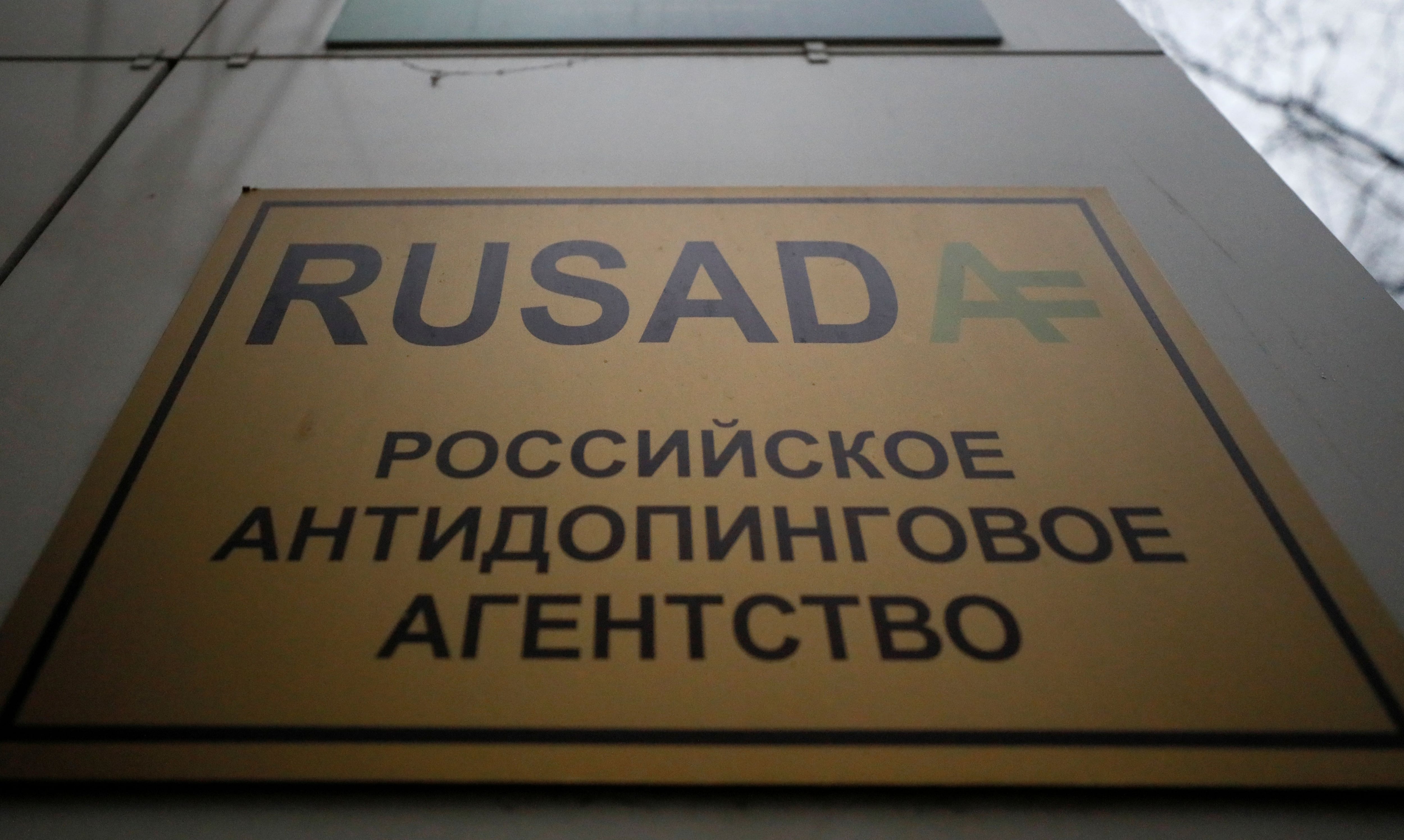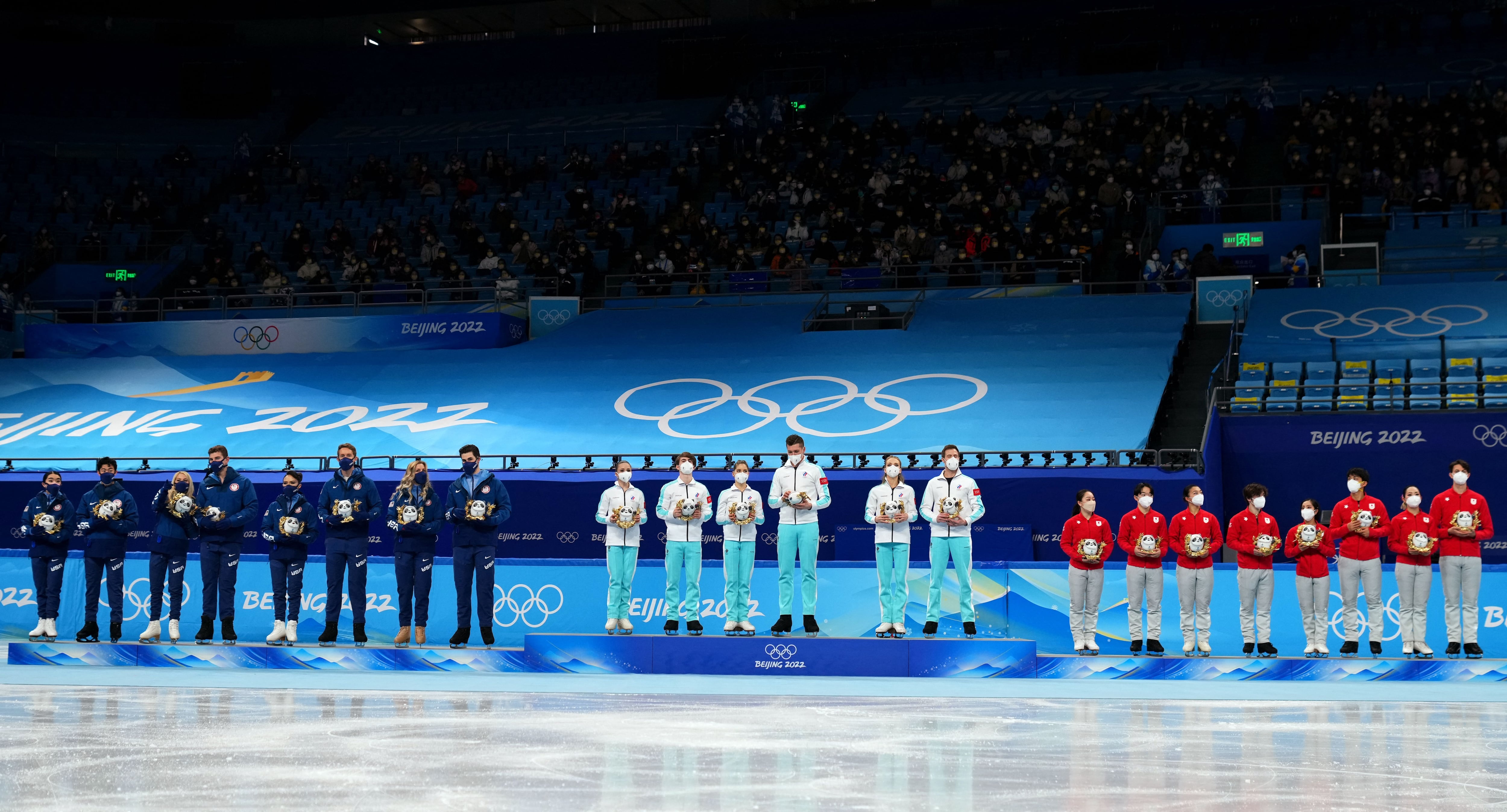
Despite her current situation, young figure skating star Kamila Valieva’s participation in the Artistic Gymnastics World Championships in Montpellier, France, would have been inspiring. But she did not count on the severe international sanctions against Russian sport after her country’s invasion of Ukraine.
The International Skating Union (ISU) has joined other world federations in banning Russian and Belarusian athletes from international events until further notice, following recommendations from the International Olympic Committee (IOC).
Valieva, 15, was eligible to skate for the Russian Olympic Committee team despite being the main focus of attention, along with her entourage, in a doping investigation. Her well-known case stole the headlines of the press and social networks around the world during the Winter Olympics in Beijing last February.
The channels of the investigation, ordered by the IOC and the World Anti-Doping Agency (WADA), could seem relegated after the global repercussion and the negative effects of the military action decreed by Russian President Vladimir Putin called “special operation for peacekeeping.”
Russian Sports Minister Oleg Matytsin updated Valieva’s situation, whose positive doping was revealed while she was competing in Beijing, based on a sample taken in December.
“The investigation is carried out by RUSADA (the Russian anti-doping agency),” Matystin responded during an interview with MatchTV about the traumatic panorama of Russian sport.
“It is not public today, so I would not talk about any details and stages. There are certain deadlines within which results must be submitted. WADA is actively monitoring this.
“I know there is a dialogue with Kamila, and with her coach, and her mother, to determine the story that was the basis of the investigation. I can’t say more today.”

Matystsin said he met Valieva and her coach, Eteri Tutberidze, in their first training sessions after Beijing 2022.
“It is quite obvious to me this whole story is a wild accident, and I still cannot find an explanation for it. Evidently, the athlete had no reason to take that drug, of which microdoses were found. This had no effect on the result of her performances, so let’s hope for a fair result and for Kamila to continue her career.
Matystsin specified his meeting with them took place on February 20 when the skaters were actively preparing for the World Championships in France “and were thinking about the next Olympic cycle.”
“At that moment I understood life goes on and Kamila has all the physical and moral strength to continue her career. Psychologically she is a very strong person, despite her young age. This is the most difficult lesson for her. But I understand this lesson will only make her stronger as an athlete. I hope so,” the Russian official said.
MatchTV investigated the working conditions of RUSADA in the current context of “closed borders” that Russia is suffering as a result of the war in Ukraine.
“Yes, the tests are underway,” the manager clarified.

“We provide assistance to the agency within the limits of our competence. We know a constructive dialogue is taking place between RUSADA and WADA, and there is a willingness on the part of the international agency to continue taking measures to maintain regularity of work.
“This also applies to the situation with sampling and its delivery to foreign laboratories. We do not see any risk. At first there were doubts, but today the communication is without barriers,” expressed Matystsin.
The “Valieva Case” has uncovered mixed reactions within Russia itself.
In Beijing, the president of the IOC, Thomas Bach, strongly criticized Valieva’s entourage for the inappropriate treatment that, according to him, he was able to observe towards her after her unsuccessful performance in the individual competition.
In another order, Bach warned that drastic measures will be taken if irregularities are discovered during the investigations into the prohibited substance detected in the athlete’s body.
The Russian athlete tested positive for trimetazidine (a drug against angina pectoris that appears on the list of prohibited products of WADA) in an anti-doping test carried out at the end of last December, the results of which were not known until February 8, after the Russians had achieved team gold.
The positive control was made by the laboratory in Stockholm, Sweden.

The medal ceremony for the Russian Olympic Committee team (gold), the United States (silver) and Japan (bronze), is still postponed until the result of the current investigation is known.
In a controversial decision, the Court of Arbitration for Sport (CAS) allowed the Russian athlete to continue competing, and appeals from the IOC, WADA and the ISU had no effect.
The CAS said, however, that Valieva, a “protected person” for being under the age of 16, was still subject to a positive disciplinary procedure.
Valieva returned to Moscow from Beijing on February 18. Two days later, she held her first training session, and on February 21, she participated in a ceremony honoring Russian Olympians.
On February 24, Putin began the military operation against Ukraine and violated the Olympic Truce decreed by the United Nations and approved by 193 nations, Russia among them.
Últimas Noticias
Debanhi Escobar: they secured the motel where she was found lifeless in a cistern

The oldest person in the world died at the age of 119

Macabre find in CDMX: they left a body bagged and tied in a taxi
The eagles of America will face Manchester City in a duel of legends. Here are the details

Why is it good to bring dogs out to know the world when they are puppies




